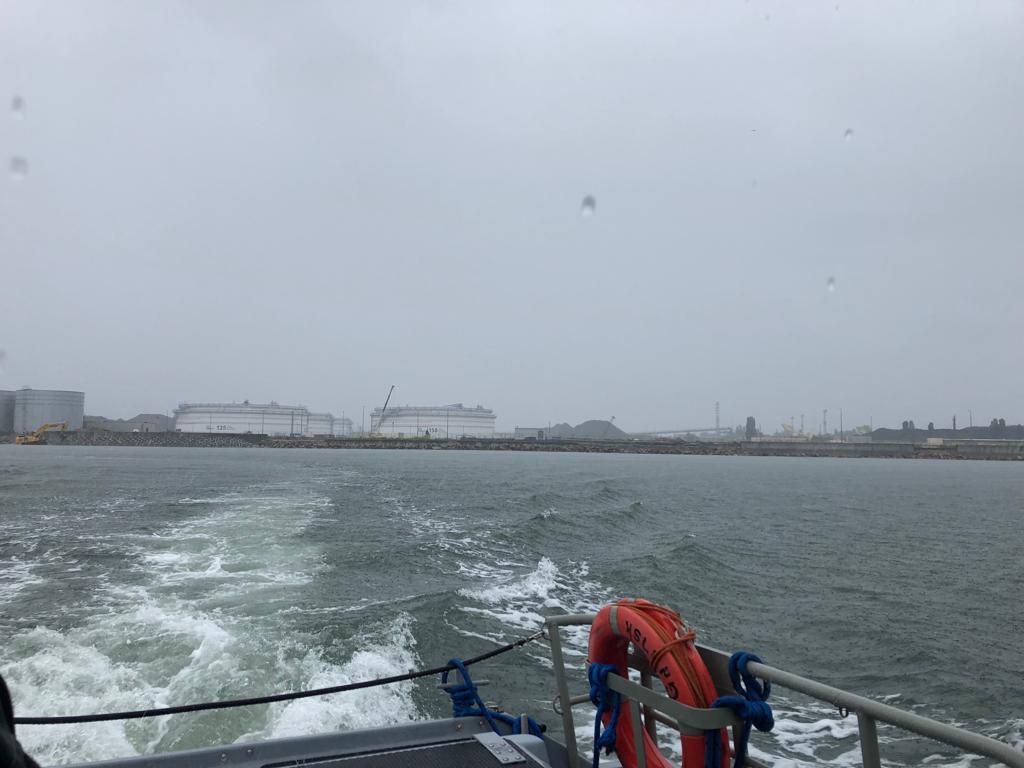What goes on in Poland on the 13th of February.
Poland waiting for Germany to derusify Schwedt
The Climate Ministry has commented on the speculations in German media about Poland blocking deliveries from its Naftoport to Schwedt. The deliveries must be cooridanted with schedules at other refineries, but Poles refuse to work with Rosneft, which is still a shareholder in Schwedt, despite Germans agreeing to derusify the facility.
The Maerkische Oderzeitung daily has reported that its own source confirmed that one load of oil ordered by Rosneft Deutchland was rejected at the naftoport in Gdańsk. The Russian company is a majority shareholder (54 percent) of the Schwedt Refinery (PCK-ed.). Instead of being disowned like Gazprom Germania was from German gas storage facilities, the company has been put under trusteeship of the Bundesnetzagentur. Poland’s Minister for Climate and Environment Anna Moskwa told BiznesAlert.pl that the derusification of this facility was part of the deal with her German counterpart Robert Habeck, but a final decision has not been made yet. BiznesAlert.pl has written about the deadlock over the possibility of allowing PKN Orlen to enter Schwedt.
„In accordance with the declaration signed on December 2, 2022 on bilateral cooperation between Poland and Germany in the field of oil and fuel supplies, Poland is making every effort to enable the unloading of ships for the Schwedt refinery in the Gdańsk oil port (aka the Naftoport – ed.),” the Polish Climate Ministry told BiznesAlert.pl. „The delivery and unloading dates depend on the obligations arising from the contracts signed with the customers. Let us recall that the PCK refinery, for which the delivery is to head, does not have a guarantee agreement for the supply of oil through the oil terminal in Gdańsk, and the terminal’s transshipment capacities are reserved by the company’s customers. Thus, the possibility of unloading for another company depends largely on the schedule and volumes of unloading for contracted customers,” the Ministry explained.
„With regard to deliveries to the PCK, we inform that, in accordance with the signed declaration, both countries agreed that no joint action should bring direct benefits to the Russian government or companies controlled by it, and therefore Polish entities will not support any actions taken on behalf of Rosneft,” the Climate Ministry said, referring to media speculation in Germany about the blocking of deliveries to Schwedt for Rosneft Deutschland.
„In order to allow the flow of oil brought by ships through the naftoport in Gdańsk to the refinery in Schwedt, close cooperation of all four refineries (Gdańsk, Płock, Leuna and Schwedt) is needed. It is difficult to find days off in the Naftoport’s schedule, but if the refiners carry out logistical analyses together, they will be able to coordinate orders, streamline unloading, order several ships with the same oil in a row, etc. As a result, some dates in the schedule may open up,” the Ministry stated. „At the end of 2022, a test delivery to Schwedt took place, a second one took place in January, and more are and will be happening in February. The ships are ordered by Shell, which is a minority shareholder in the Schwedt refinery. The PCK refinery has a processing profile (just like the Gdańsk refinery), that is, it processes oil for individual shareholders, but in return it receives only cost coverage, leaving the margin to the given shareholder,” the Polish Ministry explained. Shell was supposed to sell its stake in Schwedt to Rosneft just before Russia invaded Ukraine, which would give the Russians a 91.5 percent stake, but Berlin blocked the deal after February 24. It is worth recalling that the Leuna refinery under the control of the French Total has completely abandoned oil from Russia and successfully uses the Naftoport in Gdańsk.
„Poland has openly communicated to Germany that it expects the derusification of the Schwedt shareholders – this is a task for the German government,” the Polish Ministry clearly stated in a comment for BiznesAlert.pl. German ambassador to Poland Thomas Bagger assured that the parties were looking for a solution to the Schwedt refinery. „In the talks between Berlin and Warsaw, it is clear that the issue of the lack of Russian shares and the lack of Russian revenues is a precondition for cooperation on deliveries to the Schwedt refinery or for further involvement of Poland in this project,” he concluded in an interview with BiznesAlert.pl.









